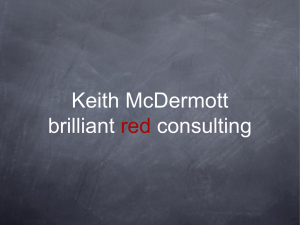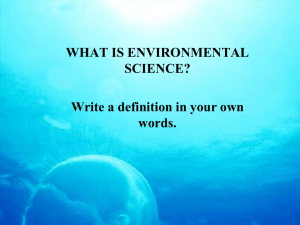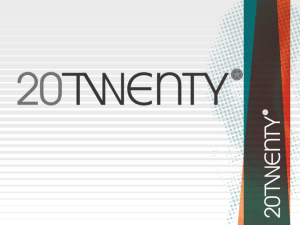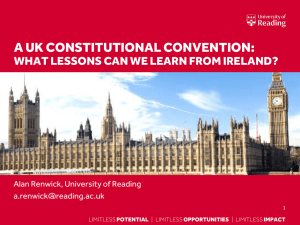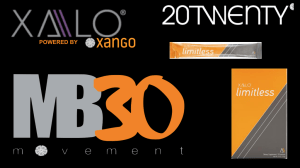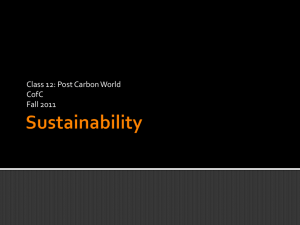how new Masters students learn the rules of the game
advertisement
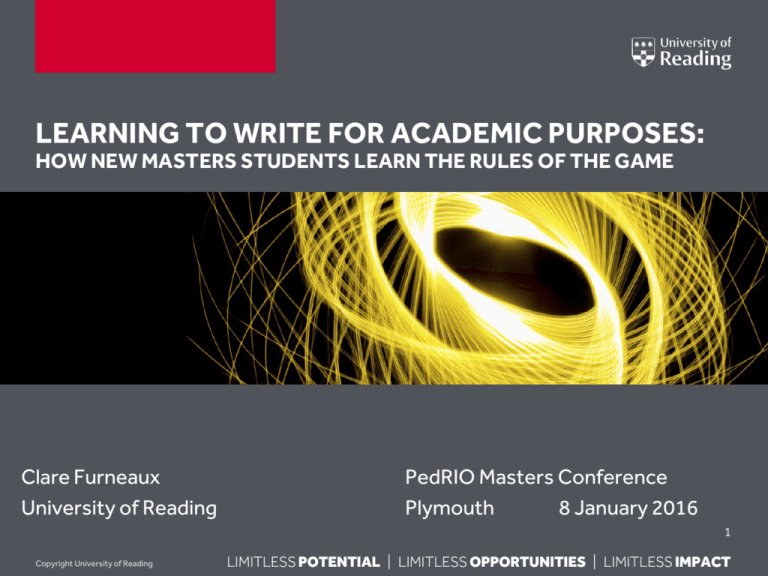
LEARNING TO WRITE FOR ACADEMIC PURPOSES: HOW NEW MASTERS STUDENTS LEARN THE RULES OF THE GAME Clare Furneaux University of Reading PedRIO Masters Conference Plymouth 8 January 2016 1 Copyright University of Reading LIMITLESS POTENTIAL | LIMITLESS OPPORTUNITIES | LIMITLESS IMPACT BACKGROUND: WRITING ON MANY UK MA PROGRAMMES ‘essayist literacy’ tradition (Scollon and Scollon 1981) = the dominant Western, rationalist tradition of literacy • = an “ideologically inscribed” practice (Lillis, 2001: 39) • = “an institutional practice of mystery” (Lillis, 2001: 53) for many students • 2 LIMITLESS POTENTIAL | LIMITLESS OPPORTUNITIES | LIMITLESS IMPACT MY STUDY’S RESEARCH QUESTIONS: 1. How do taught postgraduate students develop an understanding of the writing demands of the academy in the early stages of their study? 2. What differences are there in the experiences of students developing academic writing skills within this context? LIMITLESS POTENTIAL | LIMITLESS OPPORTUNITIES | LIMITLESS IMPACT BACKGROUND • Longitudinal study: 1-year • Case studies • Students x 6 MAELT/AL students, University of Reading, UK Gender: 3 men + 3 women Age range: 21-33 years • Language skills Non-native English speakers x 5 IELTS 6.5-8.0 Japanese, Polish, Romanian, Turkish Native English speaker: x1 (British) • Language teaching experience: 1-7 years LIMITLESS POTENTIAL | LIMITLESS OPPORTUNITIES | LIMITLESS IMPACT FOCUS: FIRST THREE ESSAYS- WRITTEN BY ALL STUDENTS Assignment Deadline Formative preTerm 1, Week 4 course Discourse Analysis Term 1, Week 10 Second Language Acquisition Term 2, Day 1 Length (words) 1,000-1,500 Credits 2,000-2,500 10 3,000-4,000 20 0 5 LIMITLESS POTENTIAL | LIMITLESS OPPORTUNITIES | LIMITLESS IMPACT THEORETICAL BACKGROUND: • English for Academic Purposes (Flowerdew and Peacock 2001, Hyland 2003) • Academic Literacies (Lea and Street 1998, 2006; Lillis 2001, 2003) • Discourse community (Swales 1990) • Community of practice (Lave and Wenger 1991) LIMITLESS POTENTIAL | LIMITLESS OPPORTUNITIES | LIMITLESS IMPACT CORE INFORMATION SOURCES: • Interviews : students (5 times over the academic year) and staff • Student questionnaires (pre-course, one-year after leaving) • Student e-mail reports at key points • Assignment rubrics and briefings • Assignments • Feedback on assignments (written and f2f) 7 LIMITLESS POTENTIAL | LIMITLESS OPPORTUNITIES | LIMITLESS IMPACT FINDINGS • All students are individuals • BUT • common issues/challenges • Not a community of practice • More a discourse community 8 LIMITLESS POTENTIAL | LIMITLESS OPPORTUNITIES | LIMITLESS IMPACT Personal characteristics Developing academic literacy in this context • Programme expectations • Level of application • Approach to learning • Response to feedback Content Criteria Genre Personal background • Professional • Discipline • Academic • Linguistic • Motivation • Identity/personality • Previous writing tasks and feedback • Previous reading (genre-awareness) The writing task Topic The reader • Developing writer strategies/ writing process • Awareness of criteria • Audience awareness • Developing voice Drawing on own experience Feedback on outline Literacy brokers Task-based factors Writer-based factors • Programme-related • Non programme-related LIMITLESS POTENTIAL | LIMITLESS OPPORTUNITIES | LIMITLESS IMPACT PEDAGOGIC IMPLICATIONS 1. 2. 3. 4. Departmental support Developing a community Broadening genre awareness Meeting readers’ expectations 10 LIMITLESS POTENTIAL | LIMITLESS OPPORTUNITIES | LIMITLESS IMPACT PRINCIPLE: LOCATING ACADEMIC WRITING SUPPORT WITHIN THE DISCIPLINES • All students need writing support while studying: from subject-discipline teachers? from non-subject specialist EAP/Study Support teachers? • From both, as appropriate for a student’s needs • Drawing on: EAP pedagogy and Academic Literacies thinking 11 LIMITLESS POTENTIAL | LIMITLESS OPPORTUNITIES | LIMITLESS IMPACT 1. DEPARTMENTAL SUPPORT Module tutors: more in-class time on writing; more detailed explanations than might be thought necessary: 1. to explain assignment demands/marking criteria in detail > once 2. to emphasise /exemplify advantages of any presubmission support 3. for in-class tasks: analyses of successful/unsuccessful previous student writing 12 LIMITLESS POTENTIAL | LIMITLESS OPPORTUNITIES | LIMITLESS IMPACT DEPT SUPPORT CONTD. 4. to give: criterion-linked feedback re specific strengths & weaknesses in assignments general points about lessons future writing 5. to help to develop audience-awareness eg by ref to themselves as readers in feedback 13 LIMITLESS POTENTIAL | LIMITLESS OPPORTUNITIES | LIMITLESS IMPACT 2. DEVELOPING A COMMUNITY 1. out-of-class small study groups 2. these need developing and practising in-class 3. group collaboration can then be extended to writing, with students being encouraged to read each other’s work 14 LIMITLESS POTENTIAL | LIMITLESS OPPORTUNITIES | LIMITLESS IMPACT 3. BROADENING GENRE AWARENESS 1. broadening the range of assessment types beyond the essay 2. students studying egs of appropriate writing in a limited range of genres 3. the authors of these egs = previous students on same programme – so: writing situated in the same context 15 LIMITLESS POTENTIAL | LIMITLESS OPPORTUNITIES | LIMITLESS IMPACT 4. MEETING READERS’ EXPECTATIONS 1. 2. 3. 4. 5. identifying who the readers are developing own voice understanding the UK grading system using feedback – understanding its purpose Johns and Swales’ (2002)four layers of sociocultural expectation that affect genre requirements for doctoral students – these apply here: 16 LIMITLESS POTENTIAL | LIMITLESS OPPORTUNITIES | LIMITLESS IMPACT JOHNS AND SWALES’ (2002) LAYERS OF EXPECTATIONS Layers of Issues noted in Furneaux expectations (2012) study Examples of pedagogic implications for Master’s programmes University- Students’ bemusement at More class time required to discuss the mark wide the University grading expectations scheme scheme and expectations, especially on the return of first pieces of assessed work of scholarship 17 LIMITLESS POTENTIAL | LIMITLESS OPPORTUNITIES | LIMITLESS IMPACT Layers of expectations Departmental & Issues noted in Furneaux Examples of pedagogic implications for (2012) study Master’s programmes 1. 1. Challenges of discipline expectations assignment topic of appropriate topics and choice appropriate claims 2. 3. 4. assignment topics in classes 2. Learning that T&L experiences = Structured, discourse analysis of Discussion of when/how to draw on their T&L experience 3. Discussion of egs of different uses of evidence + learning reading in assignments, including how to do this choice/length of quotations Learning how to draw 4 Analysis of FB on successful and on reading unsuccessful assignments appropriately Explaining FB, so that students do not see Interpreting feedback it as idiosyncratic to each tutor (FB) appropriately 18 LIMITLESS POTENTIAL | LIMITLESS OPPORTUNITIES | LIMITLESS IMPACT Layers of expectations Issues noted in Furneaux Examples of pedagogic implications (2012) study for Master’s programmes Sub-field Students’ need to learn that As above + highlighting differences expectations re MA assignments for between assignments in different methodologies, different modules could sub-disciplines /modules approaches and represent different genres, Tutors must be aware of the rhetorical options with different expectations format/genre of assignments in of how to meet core criteria other modules. 19 LIMITLESS POTENTIAL | LIMITLESS OPPORTUNITIES | LIMITLESS IMPACT Layers of expectations Issues noted in Furneaux (2012) study Examples of pedagogic implications for Master’s programmes Personal 1. Students’ need to take 1 Departmental discussion, among staff expectations: note of advice from and with students, about differences in the need to module tutors, in general expectations across modules and tutors consider and with regard to their 2 Discussion with students of the support-givers specific outline audience, and their expectations, in and examiners 2. The need to bear their assignment documents, briefings and audience, tutors and feedback examiners in mind when 3 Analysis of assignment marking writing 3. Differing use of criteria Discussion with students of what they appropriate and find to be helpful and unhelpful inappropriate FB feedback. 20 LIMITLESS POTENTIAL | LIMITLESS OPPORTUNITIES | LIMITLESS IMPACT TIMUR’S EXPERIENCE ‘I was in the middle of nowhere when I came in this MA programme because I didn’t know how to write academic writing.’ to ‘I know that if I have enough time I can do anything.’ a year later 21 LIMITLESS POTENTIAL | LIMITLESS OPPORTUNITIES | LIMITLESS IMPACT REFERENCES Flowerdew, J. and Peacock, M (eds). (2001). Research Perspectives on English for Academic Purposes. Cambridge: CUP. Furneaux, C. (2015) Supporting students to develop Master’s level writing skills. In Kneale, P. & Brown, S (Eds.) (Section 7.1) Masters level teaching, learning and assessment. London: Palgrave Macmillan Furneaux, C. (forthcoming 2016) Becoming a Post/graduate Writer in a Social Science Discipline. In C. Badenhorst & C. Guerin (Eds.) (pp 166-183) Research literacies and writing pedagogies for Masters and doctoral writers, Studies in Writing Series. Leiden. Netherlands: Brill Hyland, K. (2003). Second Language Writing. Cambridge: CUP. Johns, A. M. and Swales, J. M. (2002) Literacy and disciplinary practices: opening and closing perspectives. Journal of English for Academic Purposes, 1, 13-28. Lave, J. and Wenger, E. (1991). Situated Learning: Legitimate Peripheral Participation. Cambridge: CUP. 22 LIMITLESS POTENTIAL | LIMITLESS OPPORTUNITIES | LIMITLESS IMPACT Lea, M. and Street, B.V. (1998). Student writing and staff feedback in Higher Education: An academic literacies approach. Studies in Higher Education, 23, 2: 157-172. Lea, M. and Street, B.V. (2006). The “Academic Literacies” model: theory and applications. Theory into Practice 45,4: 368-377. Lillis, T. (2001). Student Writing: Access, Regulation, Desire. London: Routledge. Lillis, T. (2003). An ‘academic literacies’ approach to student writing in higher education: drawing on Bakhtin to move from critique to design. Language and Education, 17, 3: 192-207. Swales, J. M.(1990). Genre Analysis: English in Academic and Research Settings. Cambridge: CUP. Wingate, U. and Tribble, C. (2012). The best of both worlds? Towards an English for academic purposes/academic literacies writing pedagogy. Studies in Higher Education, 37, 4: 481-495. 23 LIMITLESS POTENTIAL | LIMITLESS OPPORTUNITIES | LIMITLESS IMPACT
